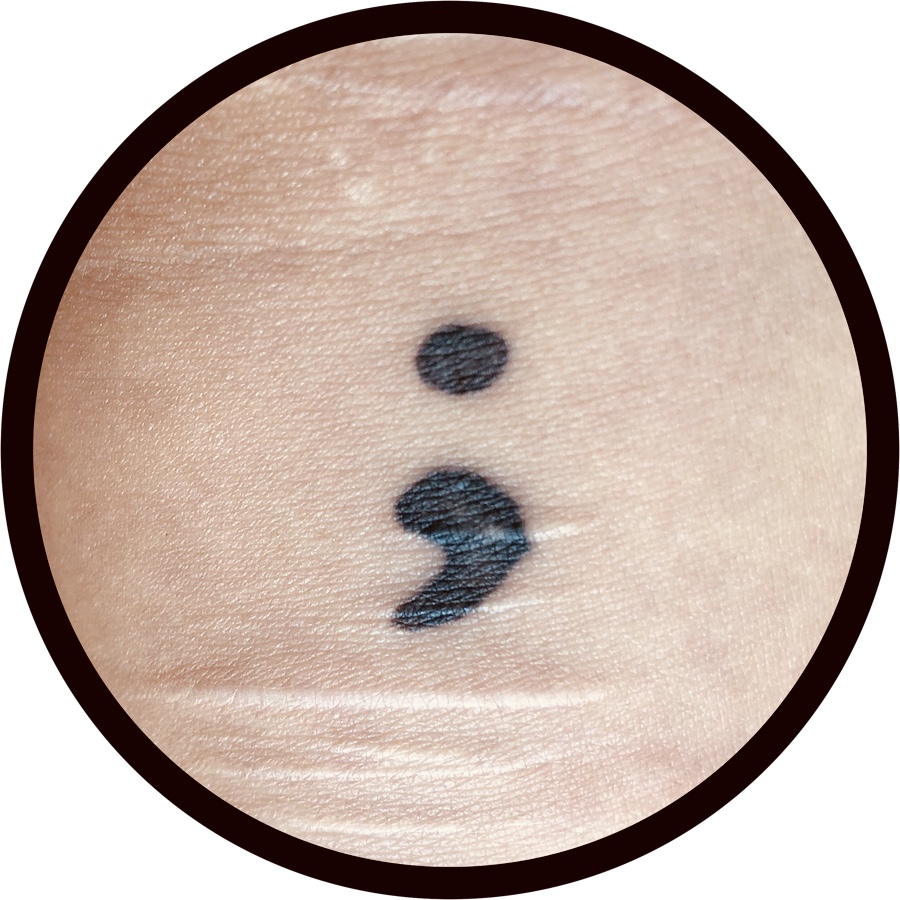Hi! I hope you all had an enjoyable and happy New Year! My fiancé and I spent New Years’ eve alone together which was the first major holiday not spent with my parents. It was strange but still great. We had a fun time even though I was a little trapped in my head. Otherwise it was perfect to do this right before reaching 5 years together. 2016 to 2021; I wonder what the future has in store for us! On New Years’ day we ate dinner all together and had a really great time.
The Holidays are over now and we’re officially 2021…I think the best we can do to optimize this unpredictable year is to get our own houses in order. After all…our well being starts there!
Resolutions
It’s a time for rebirth and I’m ready to make this year as good as I can! I don’t believe in New Years’ Resolutions because they never seem to work out…this can’t be another “I’m going to go to the gym 5 days a week and eat salad….” (fast forward 3 weeks) Isn’t going to the gym and is in fact eating 4 slices of cake. Nevertheless, we CAN make changes and follow through with them if we’re determined enough. My advice? Don’t call them New Years’ resolutions… turn everything into a smart action plan instead!
Crafting a Routine / Schedule
In my last blog I mentioned that I would be doing a piece on creating personal routines and forming a healthy, sustainable schedule. I can’t emphasize those two words enough: Healthy and sustainable. Without these two essential components, a schedule / routine can turn from productive to dangerous in a very short amount of time! I am the Queen of unhealthy routines. Seriously … please don’t dismiss the importance of these aspects, they nearly killed me. Literally. Ambition is great, and depending on how you’re wired it may be enormously tempting to craft a schedule that includes every detail you want to get perfect. However too much ambition / rigidity looks something like this over time:
- Seeing quick results in the short term and becoming emboldened by that so we continue.
- Biting off too much to tackle at once, but managing to do it for a while.
- Putting stress on ourselves to meet deadlines within the time we have.
- Constantly thinking about what must be done.
- Rushing meals, skipping them, eating more…
- Using time that should be spent on self-care, family, friends, relaxation, etc. to get through what we’re not able to do in the allocated time anymore.
- Cutting on sleep to meet deadlines / being so stressed that sleep is challenging.
- Working despite exhaustion, be it mental, physical or both.
- Losing pleasure in everything, feeling really alone, anxiety, depression…
- Struggling to maintain real obligations as well as pressures that are self-imposed. Missing deadlines, worsening performance in many tasks, questioning the purpose of efforts that are appearing fruitless, etc.
- Hitting the wall and no longer being able to function – I won’t describe it because it’s different for everyone.
In short this was me around my worst. I had given up most of the really important things we need as people. I was surviving off coffee, 3 hours of sleep and the desperate need to be thin and get as high grades as possible.
Wake up at 3 a.m. Coffee. Exercise (6 hours minimum, a minimum of 4 from zumba per day). Homework (must get 95% +). Exercise. Coffee. Walk to to the bus terminal and take the bus to school. Class. Walk with my boyfriend inside or out. Class. Consume something? Throw up. Class. Do something that involves walking. Bus back, and walk. Drink Monster. Exercise. Homework. (Often self harm.) Exercise. Homework. Midnight: pass out in bed. Repeat, add work in the evenings during the weekend and binging (ish) / purging.
DO NOT DO THIS OR ANYTHING LIKE IT!
Some Advice that I Need to Follow too…
Step 1: Obligations
The first thing to do is to fill in your obligations like school and work. You may have chosen your work/school schedule but it now needs to be followed because that section doesn’t have wiggle room. Therefore allocate your shifts and/or classes first and include any time that needs to be spent before or after. (This includes getting ready, travel time, etc.)
Step 2: Evaluate Your Current Routine
Take a look at your current routine and make note of the time you wake up and go to bed, meals times and when your energy is highest and lowest. With your existing plan also consider the times and events when you’re most happy. Conversely, do the same for periods when you’re unhappy, stressed / anxious, down, angry…any mood patterns you can find that are associated to specific things you have to do during the day. Ask yourself the important questions: Does this work for me? Does this part of my day make me happy? Do I dread this aspect of my schedule?
Step 3: Accepting / Planning the Inevitable
For things that need to be done even if they’re not enjoyable, sometimes we can’t push them out of our schedule. This means that the best we can do is complete the task (if it’s not sensitive to a specific time) at the least bad moment for it. For example if morning is your prime energy time, perhaps getting unpleasant tasks done early will help.
The psychological trick of getting children to do things by giving them a bit of choice applies to this situation too in a funny way. When you want your kid to eat vegetables for example and asking / convincing them isn’t working, it can be presented instead as a choice of, “Would you like peas or broccoli sweety?” The child feels like they had a say and got to make a choice for themselves, and the two options are vegetables thus meeting the goal.
We can do the same with ourselves by making compromises and picking ‘the lesser of the evils’. In this case we’re not giving ourself a tiny choice to create the illusion of choice, because when you think about it life is all about choices. As sentient beings we have the power to react in different ways to the same event. If something really difficult hits us it’s on us as to how we receive, handle and process it. (That’s not in any way to say that it’s easy and we should all be moving on without trouble, meaning mental illness is a choice. I find it ridiculously stupid and hurtful when I hear things like that.)
In short, what I believe is that over time we can learn how to handle things more healthily. However if what you have to do in a day is beyond your current energy and level of functioning despite having tried…DON’T force yourself! It better to wipe your schedule clean than to red zone and badly harm yourself psychologically. (This goes for physically too but we’ll stick with our topic.)
Step 4:
Fill in the chores that need to be done and again, try to find the most conducive time for you to complete them. Prioritize your list so you know what to tackle first and what can be moved around to another time or even a different day.
Step 5: Your Personal Health Plan
Now it’s time to include your health plan. Step 4 and 5 work well when planned together because we have to make sure that positive habits make up a part of every day and don’t get omitted in favour of a task. Completing what you have to do in a day is very important, but just as if not more important is allocating personal time as strictly as you would a serious obligation.
Mark down the time you want to go to bed and wake up in the morning, and test out how it works for you. Make sure you’re getting an amount of sleep that fully replenishes your energy.
Here are 2 resources on sleep that I find helpful:
Don’t underestimate the power of small enjoyable moments alone or with the people it’s safe to be with like those in your household. A morning coffee and breakfast with someone you care about is an excellent way to start the day. The same is true for other meals; if you want / are able to use breaks in a way that relaxes and gives you a free and pleasant time, go for it! This can be doing anything you enjoy to fully use your free-er periods during the day.
Plan for ‘me time’ and stick with it as if you’re paid to do it. Take the time to do things that make you feel better, calm or excite you, etc. If there are some things you want to try like a new hobby, make sure you have the time to do so. Schedules aren’t just rigid and confining structures that suck out your soul over time; that’s the exact opposite of the kind of schedule we’re trying to make! This is why I recommend not filling your schedule to the brim even if it includes a healthy percentage of personal time. We need to leave room for spontaneity, which is one of the pillars I described in my last blog about Stability. The point of having a good schedule is to create efficiency, productivity but also freedom.
Adding exercise to your routine, even if it’s short, is an excellent idea. It helps with everything from energy to sleep and of course, mental and physical health…it’s something that shouldn’t be left behind. A word of caution however is to not become obsessive with exercise! It too needs to be balanced and in its place to be healthy.
Self-Care
Taking the time to maintain your physical and mental well-being is crucial so this aspect of your routine / schedule shouldn’t be a thing that you fit in if you have left-over time; it has to be built into your schedule. Use these times during your day to work in things that you look forward to and that improve how you feel. With mental illness these periods are even more important and necessary! We all need time to work on ourselves and to repair and grow.

Good luck building your own healthy schedule, and remember, you can always make changes to adapt it better to your needs.
Take care and stay safe!


1 thought on “Mental Illness and Making a Healthy Routine”